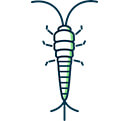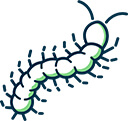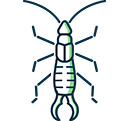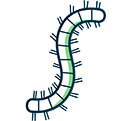-

ANTS -

COCKROACHES -

MOTHS -

MICE & RATS -

SCORPIONS -

SILVERFISH -

SPIDERS -

CENTIPEDES -

EARWIGS -

CRICKETS -

MILLIPEDES -

PAPER WASPS
Frequently Asked Questions
- Q.
Why do I keep getting ants in my kitchen?
- A.
Ants are drawn to even the smallest food crumbs or water sources. Kitchens are a hotspot because of easy access to sugar, grease, and moisture. Even sealed homes can have tiny entry points near windows, doors, or plumbing.
- Q.
Are cockroaches only found in dirty homes?
- A.
Not at all. Roaches can enter clean homes through grocery bags, drains, or cracks in walls. While poor sanitation can make infestations worse, even spotless homes can be affected if nearby conditions attract them.
- Q.
What time of year are pests most active?
- A.
Most pests become more active in spring and summer as temperatures rise. However, rodents often seek shelter indoors during the colder months, so pest control is really a year-round concern.
- Q.
How often should I schedule pest control treatments?
- A.
It depends on your location and the types of pests you’re dealing with, but most homes benefit from a treatment every 3 months. If you're in a high-activity area or dealing with recurring issues (like ants or roaches), monthly service might be a better fit.
- Q.
How can I tell if I have a termite problem?
- A.
Common signs include mud tubes near the foundation, discarded wings, hollow-sounding wood, or tiny holes in drywall. Because termites often stay hidden, regular inspections are the best way to catch them early.


